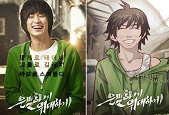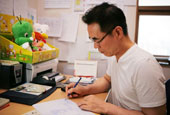The special exhibitions, each prepared with a different theme, caught much attention from spectators at the festival. The "Comics, the echo of its time" exhibit had a wide range of comics on display, including ones produced in 1909, and gave visitors the chance to look back on Korean history. Park Si-baek's "The Annals of the Joseon Dynasty," which was on display during the festival, condensed the history of Joseon (1392-1910) into 20 volumes.
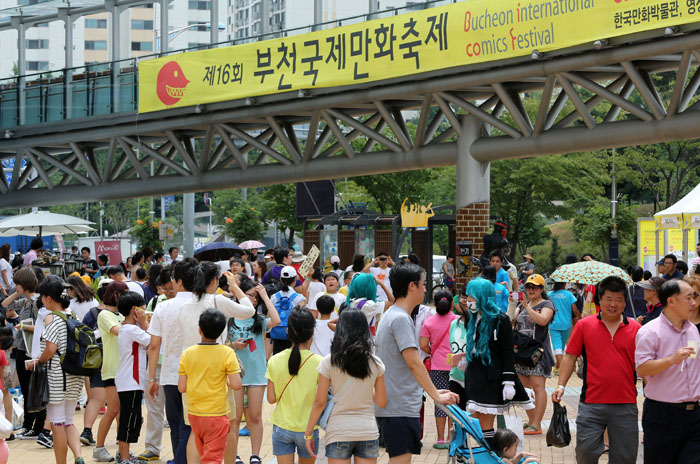
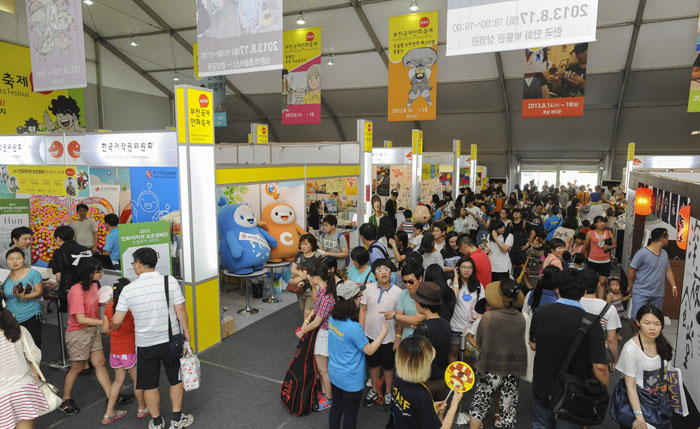
Large crowds come to see the 17th Bucheon International Comics Festival held from August 13 to August 17. (photos courtesy of the BICOF)
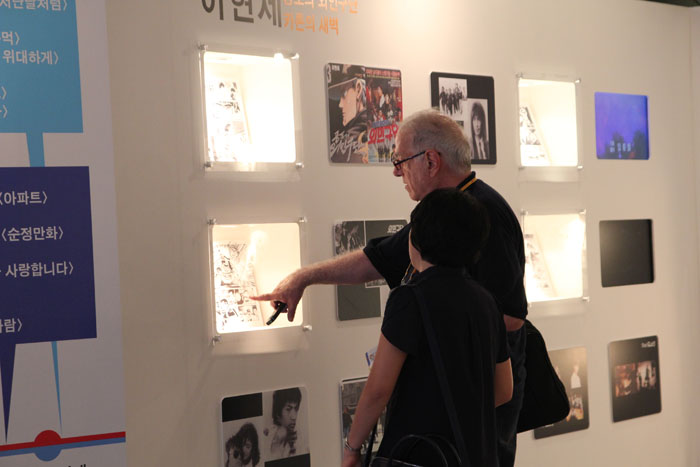
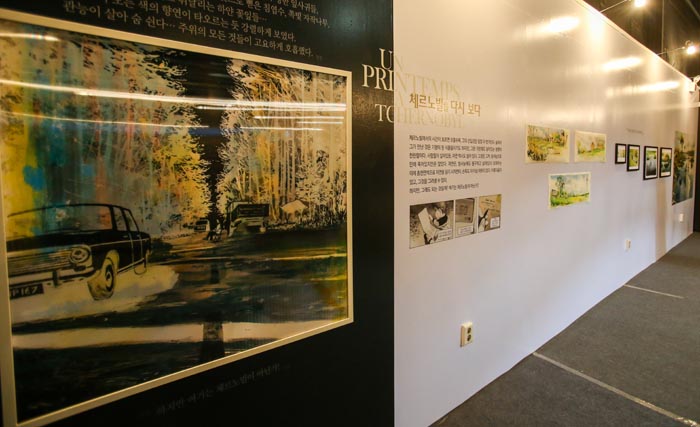
Special exhibitions with different themes are held during the festival. (Top) Spectators look at Lee Hyun-se's works. (Bottom) French comic book writer Emmanuel Lepage's "A Spring of Chernobyl" is on display. (photos courtesy of the BICOF)
There was also a special exhibition of French comic book writer Emmanuel Lepage's "A Spring of Chernobyl," which was produced from a field report about the Ukrainian city ravaged by a nuclear accident in 1986. Lepage visited Chernobyl in 2008, 22 years after the accident. Unlike the way in which the place is remembered by many people, his graphic novel shows beautiful nature being revived in the city.
The "Flower that never falls - I’m the Evidence" exhibit reintroduces some works shown at the 41st Angoulême International Comics Festival in France earlier this year. Nineteen artists created artwork about the young women who were forced to work as sexual slaves by the Japanese military during World War II. There were also works dedicated to mourning the victims of the Sewol ferry, which sank off the coast of Korea in April.
In addition to the exhibitions, there were seminars during the festival about the present and future of Korean comics. Artists had interesting discussions on how the Korean comic book market has evolved and its future with the birth of "webtoons," or online comics. Yun Tae-ho, an artist known for "Incomplete Life," Jeong Yeon-Sik, the artist and movie director, and Yang Woo-seok, the writer and director of "The Attorney," all took part in the discussion panel.
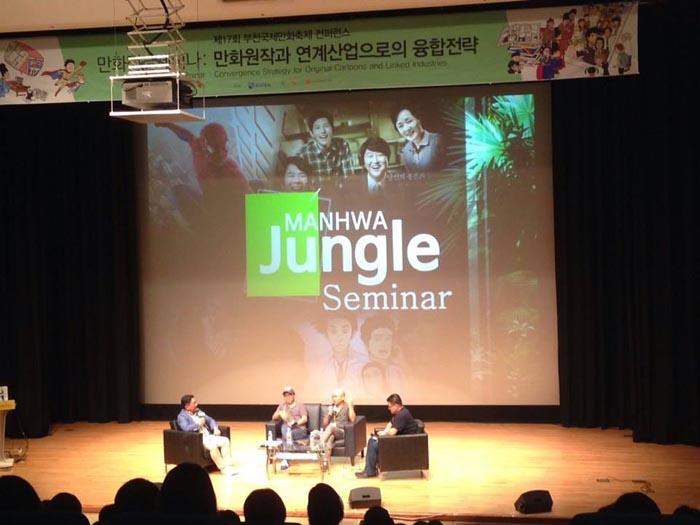
Comic book artists talk about webtoons and the future of the domestic comic book industry during a seminar. (photo courtesy of the BICOF)
Participants generally had positive views on the changes going on in the domestic comic book industry and in particular on the growing presence of webtoons. They agreed that online comics are still evolving, that they aren't complete yet and that artists and publishers alike need to pay more attention to editing and stabilizing the platform. They also stressed that when they work on new projects, they need to take into account the fact that their work can be reused in other genres, as comic books and graphic novels are increasingly being recreated in other formats, although it is not the artist's top priority.
There were also rounds of talks with Editor-in-Chief Axel Alonso of Marvel Comics and Emmanuel Lepage. Alonso explained about the way in which comic books are created at Marvel, how they are transformed into films and how Korean graphic artists could enter the U.S. market.
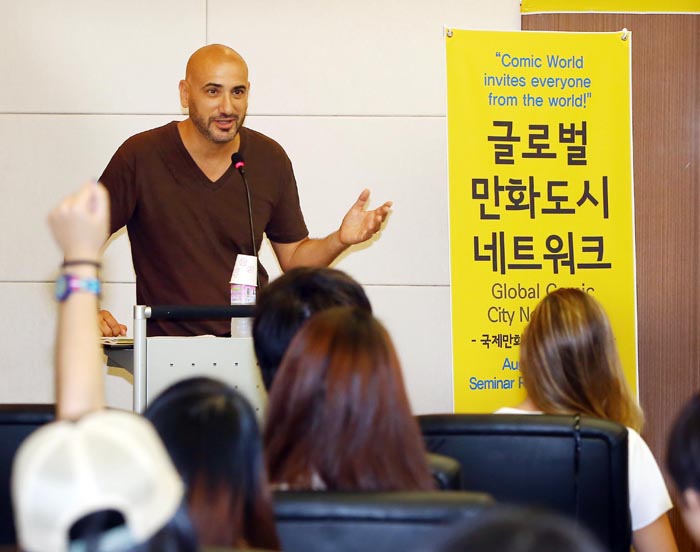
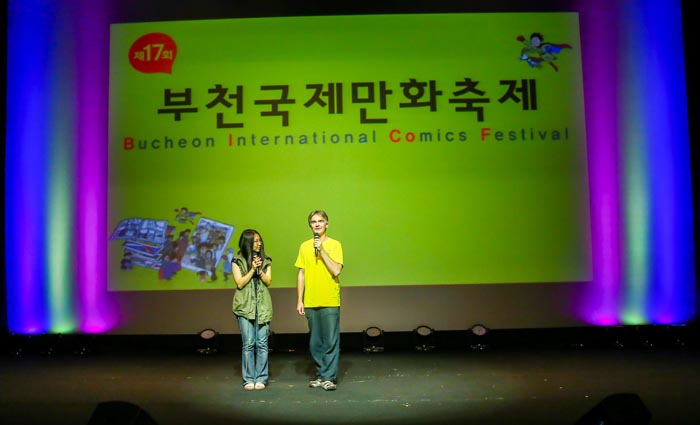
Rounds of talks with Marvel Comics Editor-in-Chief Axel Alonso (top) and French artist Emmanuel Lepage are held during the festival. (photos courtesy of the BICOF)
"I read Yun Tae-ho's comic strip and Hyung Min-woo's 'Priest,'" said Alonso. "Korean comics contain slices of life and are based on various subjects. I also like the feel from the illustrations."
Alonso said publishing online is the future of comic books. "Hard copies and the digital market will coexist, but, increasingly, more people will tend to read comic strips on their smartphones or iPads."
Emmanuel Lepage, a member of Dessin’acteurs, a group of people who believe they can change the world through arts and culture, said Korea and France have totally different cultures but that he could deeply sympathize with Korean culture.
Speaking of "A Spring of Chernobyl," Lepage said, "I never intended to deliver a message about nuclear power plants or talk about objective truths concerning them. In fact, I was surprised by the beauty of Chernobyl. Despite the tragedy, life continued on and I was impressed by that."
"I wanted to draw the life I saw in Chernobyl, a life that slowly revives and suddenly shows up in front of you. I hope that you can share how I felt about life in Chernobyl," he added.
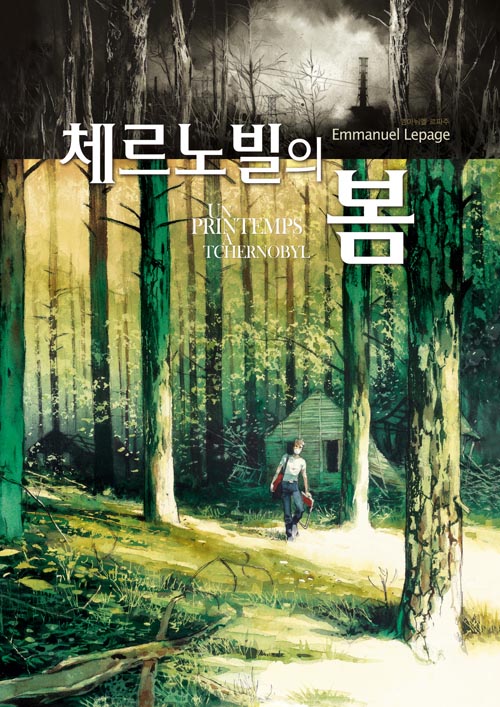
The Korean version of "A Spring of Chernobyl" (photo courtesy of the BICOF)
By Limb Jae-un
Korea.net Staff Writer
jun2@korea.kr
